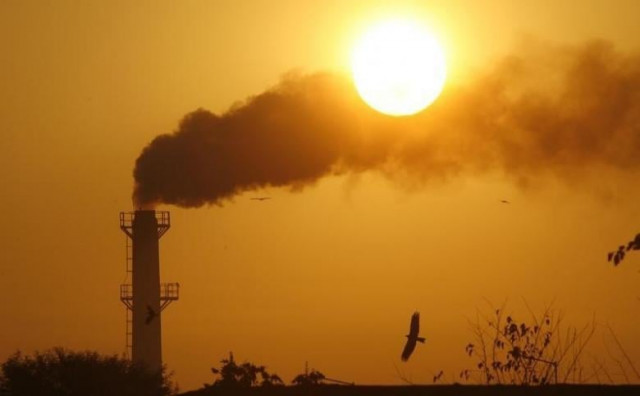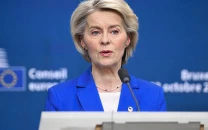Global warming set to pass 2C threshold in 2050: report
The planet has already heated up 1.0 C (1.8 F) above the pre-industrial benchmark

Smoke rises from a chimney of a garbage processing plant on the outskirts of Chandigarh December 3, 2011. PHOTO: REUTERS
Biodiversity in danger: Rapid global warming threatens ecosystems
"Climate change is happening now, and much faster than anticipated," said Sir Robert Watson, former head of the UN's Intergovernmental Panel for Climate Change (IPCC), the body charged with distilling climate science for policy makers.
Since 1990, devastating weather-related events -- floods, drought, more intense storms, heat waves and wild fires -- due to climate change have doubled in number, Watson and the other scientists said in a report. "Without additional efforts by all major emitters (of greenhouse gases), the 2C target could be reached even sooner," he told journalists in a phone briefing.
Erratic weather events more likely
The planet has already heated up 1.0 C (1.8 F) above the pre-industrial benchmark, and could see its first year at 1.5 C within a decade, scientists reported at a conference in Oxford last week. The Paris Agreement, inked by 195 nations in December, set an even more ambitious target, vowing to cap warming at "well under" 2C, and even 1.5C if possible. The pact will likely enter into force by the end of year, record speed for an international treaty. Signatories have submitted voluntary national pledges for reducing greenhouse gas emissions.
Those pledges, however, are "totally inadequate", the report said. "If governments are serious about trying to achieve even the 2 degree goal, they will have to double and re-double their efforts -- now," Watson said. "I think it is fair to say that there is literally no chance of making the 1.5 C target," he added. Urgent steps needed to decarbonise the global economy include improving energy efficiency, switching to renewable energy production, and removal of fossil fuel subsidies, said the report, entitled "The truth about climate change."
Rise in average temperature: Longer summers, warmer nights and extreme weather events
The co-authors included Carlo Carraro, scientific director of the Fondazione Eni Enrico Mattei in Italy, and vice-chair of one of three IPCC working groups. They also included Nebojsa Nakicenovic, deputy director of the International Institute for Applied Systems Analysis in Vienna and lead author the IPCC working group III. 2015 was the hottest year on record, and 2016 is shaping up to be even warmer, US and European government scientists have forecast.












1724319076-0/Untitled-design-(5)1724319076-0-208x130.webp)






COMMENTS
Comments are moderated and generally will be posted if they are on-topic and not abusive.
For more information, please see our Comments FAQ